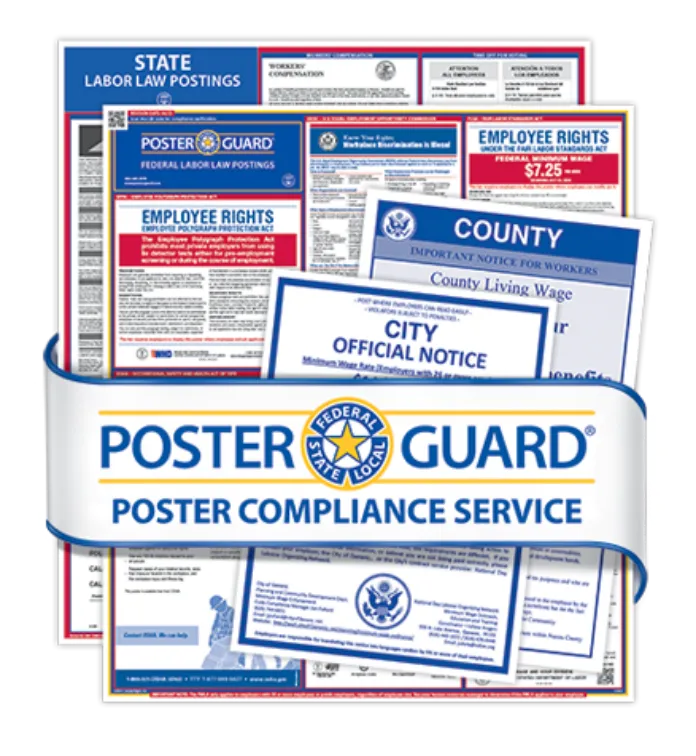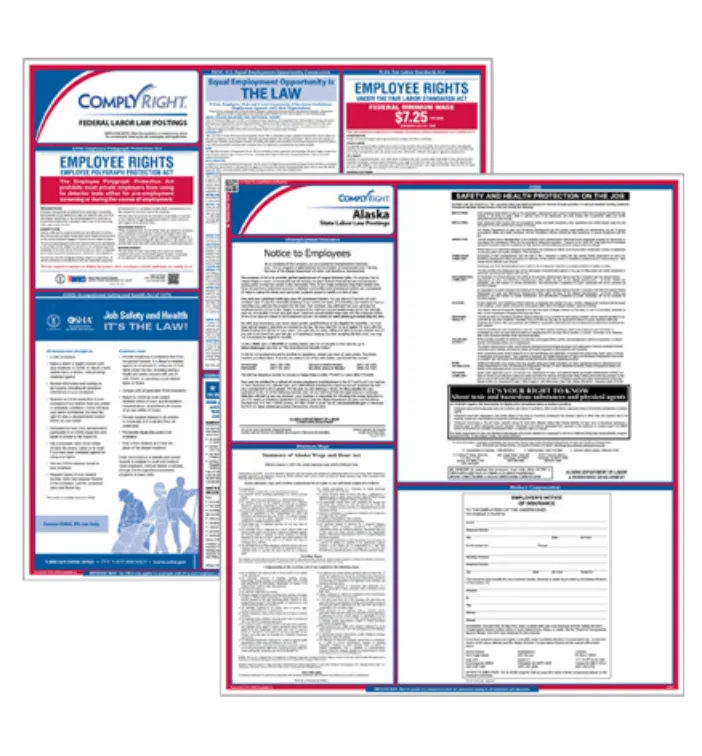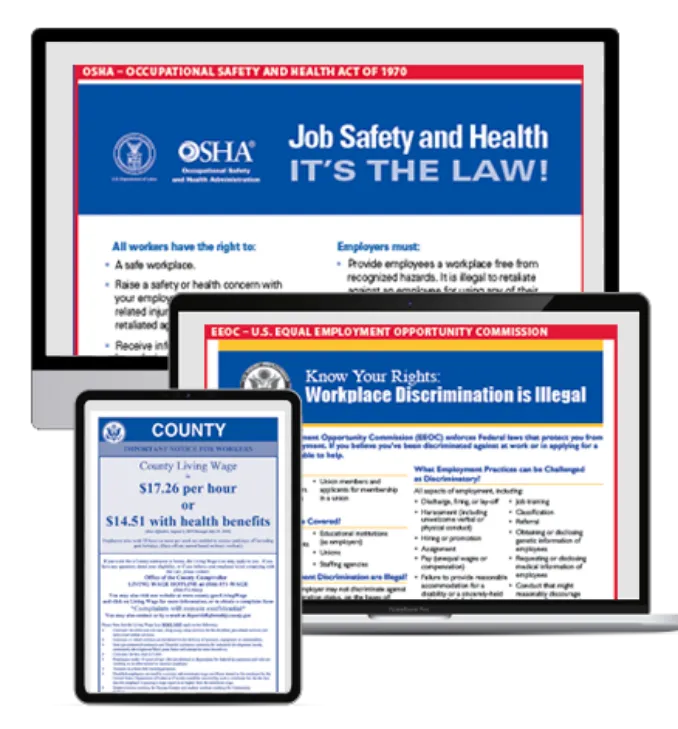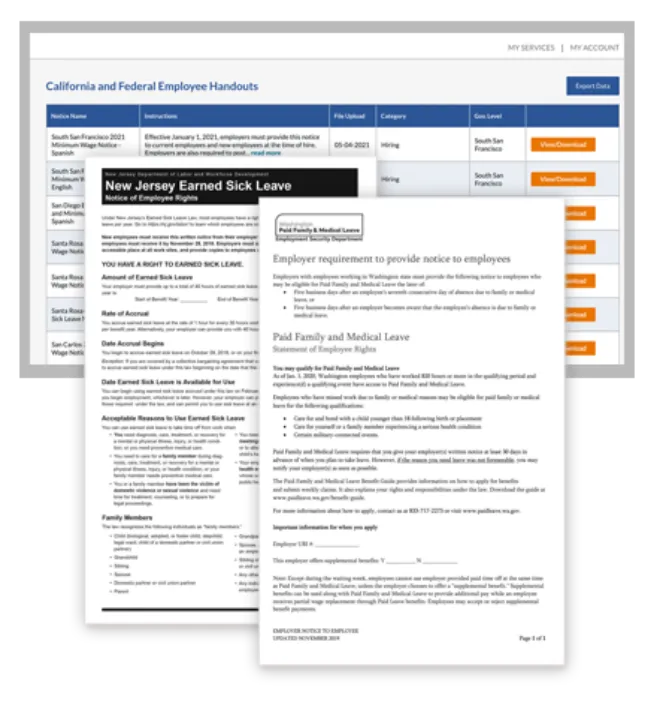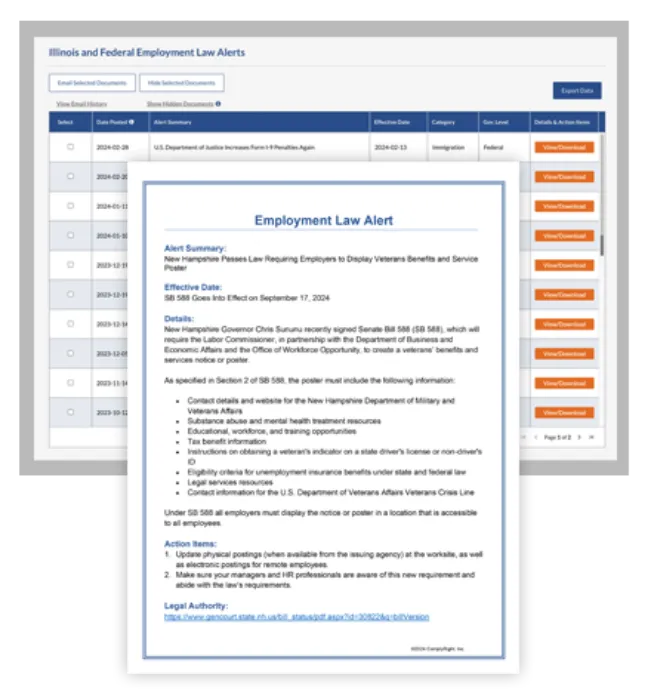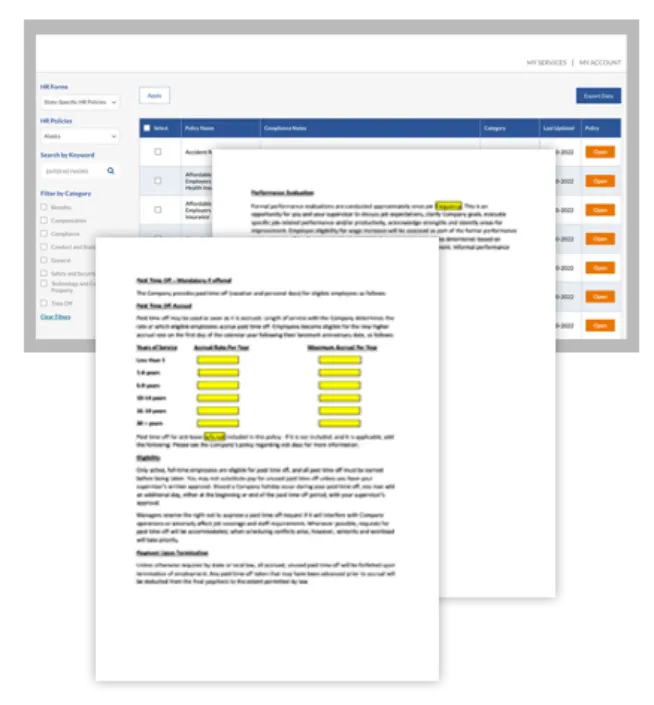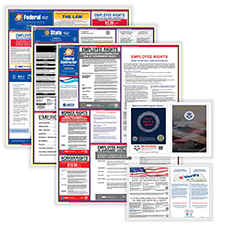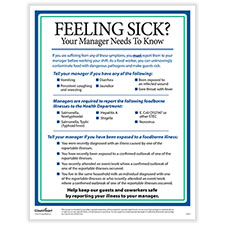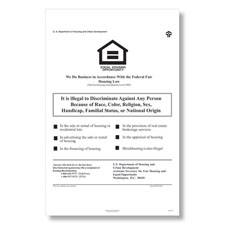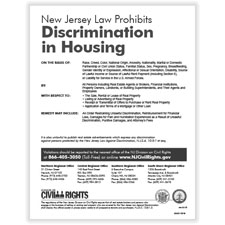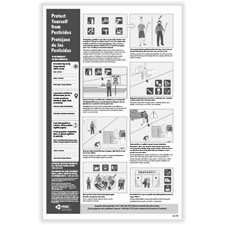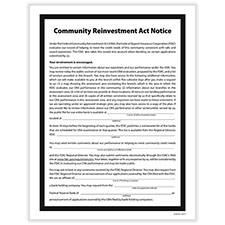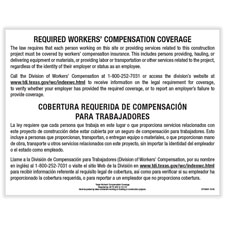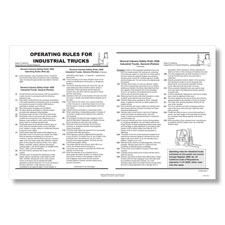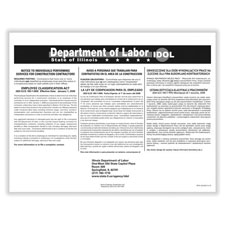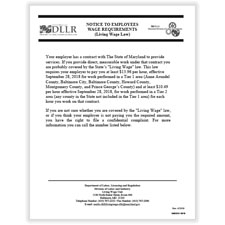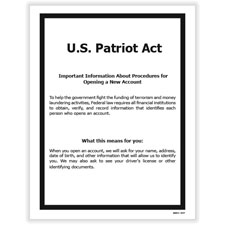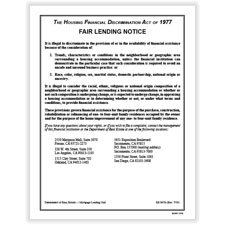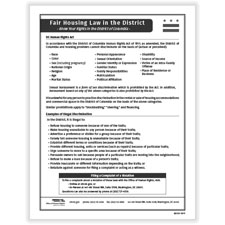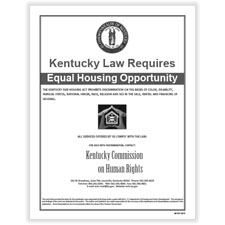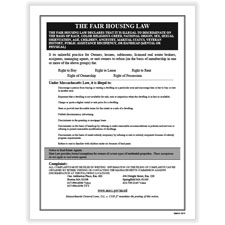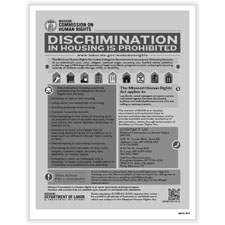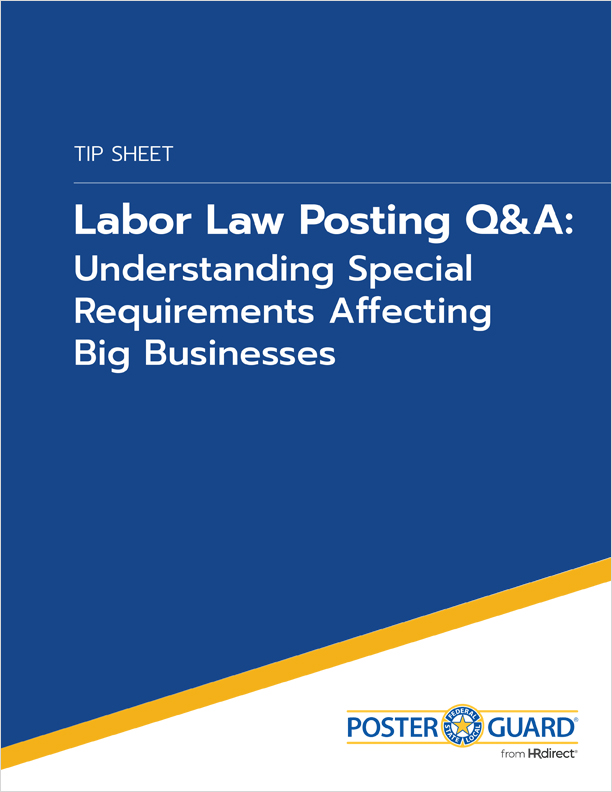Special Industry Labor Law Posters
EPA Pesticide Safety Poster
Easily Meet EPA Posting Requirements with the Pesticide Safety Poster
The Environment Protection Agency (EPA) requires U.S. employers working in agricultural settings to display the Pesticide Safety Poster in a central location in all agricultural establishments.
The Pesticide Safety Poster provides hazard communication and pesticide safety information for employees who work in agricultural settings where pesticides are used, such as field workers or pesticide handlers. U.S. employers are required to display this notice if agricultural workers or pesticide handlers are on the establishment – and a pesticide product has been used or a restricted entry-level interval (REI) for pesticide has been in effect – within the past 30 days.
HUD Equal Housing Opportunity Poster
Display a HUD Federal Fair Housing Poster if You’re a Real Estate Business
The HUD Equal Housing Opportunity Poster by ComplyRight contains legal definitions of discrimination in real estate and contact information for the government agency, as required by the Federal Fair Housing Act of 1968. Any business, broker, agent or person in the real estate business should display a fair housing poster.
Available in English and Spanish.
English - E8112 • Spanish - E8113
See Product Options tab below for guidance on language selection.
Community Reinvestment Act Notice Poster
Inform the Public About Important Rights with the Community Reinvestment Act Notice
The Community Reinvestment Act Poster must be displayed in the main lobby of banks with federally insured deposits.
Financial institutions with federally insured deposits are required to post the Community Reinvestment Act Poster in the main lobby. This includes insured state branches. The notice informs members of the public about the provisions of the Community Reinvestment Act and the community’s right to certain information about the posted bank’s operations and performance.
Texas Workers' Comp Coverage Poster/Notice to Workers on Construction Projects
Display Texas Workers' Comp Coverage Poster/Notice to Workers on Construction Projects to Communicate Legal Rights
The Texas Workers' Comp Coverage Poster/Notice to Workers on Construction Projects must be posted by all state contractors with state-building or construction contracts.
Texas law requires state contractors with state-building or construction contracts to display a special notice informing workers of their rights. The notice must be prominently displayed in areas easily accessible to all works, and it must be posted in both English and Spanish.
California Operating Rules for Industrial Trucks Poster
Comply with CAL/OSHA’s Posting Requirements for Industrial Truck Safety
California state law requires employers using forklifts and other types of industrial trucks to post specific information. The California Operating Rules for Industrial Trucks Poster includes operating rules, elevating employees with trucks, operator platforms, rated capacity, brakes and warning devices, and maintenance of industrial trucks to comply with state-specific OSHA regulations.
Illinois Employee Classification Act Poster
Meet Mandatory Illinois Posting Requirements with the Employee Classification Act Poster
All construction contractors using independent contractors must display the Illinois Employee Classification Act Poster in a conspicuous location as required by state law.
The Illinois Employee Classification Act Poster is required for all construction contractors working with independent contractors. The notice must be displayed in English, Spanish and Polish. And it must be posted in a conspicuous place on each job site where independent contractors perform services – as well as in each of the construction contractor's offices.
Connecticut Prevailing Wage Law Poster
Satisfy State Posting Requirements with the Connecticut Prevailing Wage Law Poster
Under Connecticut state law, this notice must be displayed by contractors and subcontractors with state construction contracts totaling $100,000 or more financed in whole or part by state funds.
The Connecticut Prevailing Wage Law Poster must be displayed by state contractors and subcontractors with state construction contracts totaling $100,000 or more – financed in whole or part by state funds. Connecticut law defines construction as the erection, construction, remodeling, or repairing of a public building or other public work.
Maryland Living Wage Law Poster
Display the Maryland Living Wage Law Poster to Communicate Important Legal Information
Maryland law requires that the Living Wage Poster be displayed by covered contractors and subcontractors working on state-funded service contracts.
Under Maryland law, it is mandatory for covered contractors and subcontractors working on state-funded service contracts to display the Living Wage Poster in areas where employees routinely gather. The poster details Maryland’s Living Wage Law which requires certain contractors and subcontractors working on state-funded service contracts to pay their employees an hourly rate that meets or exceeds the living wage rate established by the Commissioner of Labor.
USA Patriot Act Poster
Fulfill Customer Notice Requirements with the USA Patriot Act Poster
To meet customer notification requirements, financial institutions must post the USA Patriot Act Poster in lobbies where it can easily be viewed by the public.
Financial institutions are legally required to display the USA Patriot Act Poster. This notice provides important information for customers who wish to open or change an account with a financial institution. This mandatory posting provides information about the financial institution’s obligations to help fight the funding of terrorism and money laundering activities – including the obligation to collect identifying information from customers. There is space at the bottom of the poster for each financial institution to insert an individualized policy statement.
Home Mortgage Disclosure Act Poster
Meet Mandatory Legal Requirements with the Home Mortgage Disclosure Act Poster
Banks, credit unions, savings associations and other mortgage lending institutions are legally required to display the Home Mortgage Disclosure Act Poster in the lobby of each branch.
The Home Mortgage Disclosure Act Poster meets mandatory disclosure requirements under the Home Mortgage Disclosure Act and Regulation C. Under these laws, financial institutions are required to track and disclose information regarding residential mortgage lending. This helps ensure the public is informed as to whether the financial institution is serving the housing credit needs of the community or engaging in discriminatory lending patterns.
California Fair Lending Notice Disclosure
Inform the Public of Their Rights with the California Fair Lending Notice
The California Fair Lending Poster must be displayed by California banks, savings associations and other mortgage lending institutions.
The California Fair Lending Poster meets mandatory posting requirements under California mortgage lending laws. It explains how individuals may file complaints with the California Department of Real Estate if they feel they were discriminated against in obtaining financial assistance.
District of Columbia Fair Housing Law Poster
Satisfy Posting Requirements with the District of Columbia Fair Housing Poster
The District of Columbia Fair Housing Poster must be displayed in businesses that sell or rent homes – or finance those activities. This notice alerts consumers that in accordance with District of Columbia law, housing providers cannot discriminate on the basis of protected characteristics. It also informs customers how to file a complaint.
Kansas Fair Housing Poster
Meet State Posting Requirements with the Kansas Fair Housing Poster
The Kansas Fair Housing Poster must be displayed in all businesses involved with the sale or rental of housing. This includes real estate agencies, property managers’ offices – as well as businesses offering financing, selling and leasing services. This consumer-facing poster advises prospective renters and buyers of Kansas law prohibiting discrimination in connection with housing.
Kentucky Fair Housing Poster
Display the Kentucky Fair Housing Poster to Communicate Important Legal Information
The Kentucky Fair Housing Poster is required to be displayed in public areas where real estate or real estate-related transactions are performed. The notice informs consumers that the Kentucky Fair Housing Act prohibits discrimination on the basis of color, disability, familial status, national origin, race, religion and gender in the sale, rental and financing of housing.
Massachusetts Fair Housing Poster
Display the Massachusetts Fair Housing Poster to Meet State Requirements
The Massachusetts Fair Housing Poster must be displayed in businesses involved in selling or renting homes – including companies that finance those activities. This notice is an equal opportunity law poster issued by the Massachusetts Commission Against Discrimination. The notice must be posted in a conspicuous place where all employees can view it. This poster describes the rights of potential tenants to buy, lease, rent, own or possess property free from discrimination.
Missouri Fair Housing Poster
Share Essential Information with the Missouri Fair Housing Poster
The Missouri Fair Housing Poster must be displayed in businesses involved in selling or renting homes – including companies that finance those activities. The notice must be posted where the public can easily view it. The Missouri Human Rights Act mandates that people have equal housing opportunities and cannot be subjected to discrimination based on certain protected categories.
Businesses in certain industries — such as restaurants, healthcare facilities and public sector employers — are responsible for additional postings beyond the basic state and federal labor law posters. Special industry labor law posters cover a variety of topics, from safety regulations to minimum wage requirements, to ensure full compliance.

